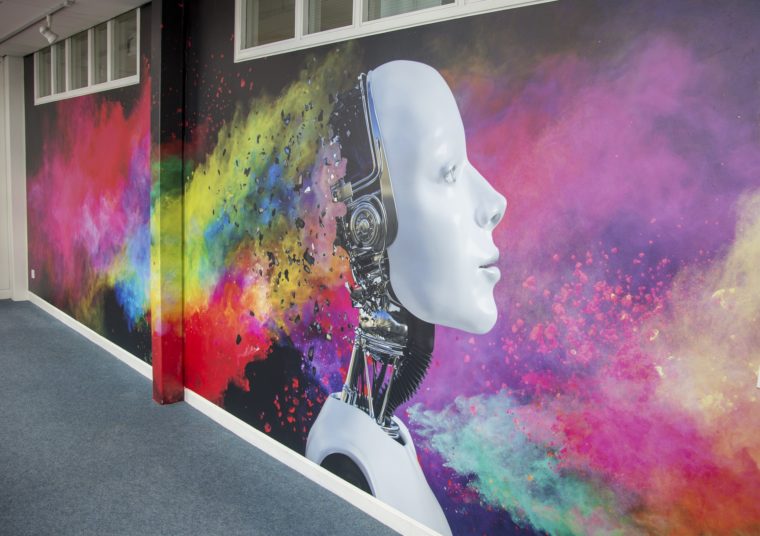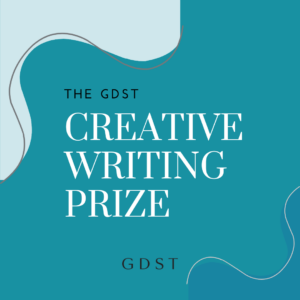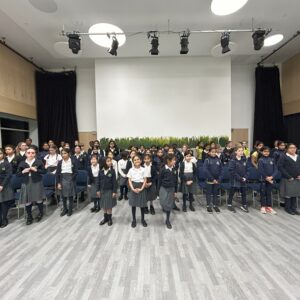News & Events
Mrs Pattison’s Blog

If you had to bet your life savings on it, would you say that this is a picture of a dog or of a wolf? A machine would identify this as a wolf. Why? Because if you ‘google image’ the word wolf, the majority of images which come up have snowy – or at least icy – backgrounds. A machine, whose algorithm interpreted the background as relevant data in the decision-making process, would, therefore, allow the snow to be an influencing factor. It’s snowy. Most pictures prove that wolves are most often found in snow. It is, therefore, a wolf.
A machine would identify this as a wolf. Why? Because if you ‘google image’ the word wolf, the majority of images which come up have snowy – or at least icy – backgrounds. A machine, whose algorithm interpreted the background as relevant data in the decision-making process, would, therefore, allow the snow to be an influencing factor. It’s snowy. Most pictures prove that wolves are most often found in snow. It is, therefore, a wolf.
Wrong. It is, in fact, a dog and you know that because you register all sorts of other critical clues and assess these as more important factors than the weather. Whatever probability dictates, sometimes dogs play in snow too.
To err is human, wrote Pope. Well, evidently, machines can make mistakes too. In fact, as I explained in assembly today, machines understand that making mistakes 50% of the time is the optimal rate for continuous learning. 50% accuracy is sufficient to affirm what it has done that is correct and also offers a sufficient margin of error to ensure the machine can learn from mistakes made. I hope this is some solace to those revising over Easter for external and internal examinations; making mistakes helps you get better (it doesn’t help you much in the exam itself, though!)
Of course, a robot doesn’t have to sleep, it doesn’t get bored nor does it need to eat or relax in order to function at optimal performance. Neither does a robot have the same sense of self that a human possesses. That means that a robot isn’t embarrassed or annoyed when it makes a mistake; it doesn’t care what others think.
I was fortunate, this week, to be able to hear one of the leading experts in Artificial Intelligence (AI) speak at The University of Oxford Literary Festival. Professor Stephen Roberts began by reminding a fascinated audience of teaching professionals that AI is transforming the way we live and the way we act. Coincidentally, the Croydon High Senior School teachers’ development briefing on Wednesday centred upon the same theme as his talk; what does it mean to be human and, crucially for us, how should education prepare humans for a robotic age?
We could easily, nowadays, run a school with very few teachers. AI could determine what our students need to know and how often they need to be fed certain information in order for it to be retained. An online facility could convey the learning, test it and revisit it at suitable intervals and all of this would be completely personalised to each student’s learning preferences and patterns.
This would be good preparation for any examination. But, could your daughter sit through video after video, read passage after passage and complete online test after online test for 5 years and still sustain any love of learning?
No doubt, AI could help perfect skills and techniques in preparation for an important netball match, it could ensure the most effective tactics in defence and attack were learned and prepared, but from where would students get the team spirit and the ‘fight’ required to beat a local rival? AI could easily sift through the hundreds of books available in the LRC and use its personalised knowledge about each student and her preferences to help find a book she would love, but would it be able to inspire her to read in the first place? AI could point students in the direction of relevant Google searches to inform them of the plight of those supported by our Amnesty International group, but I would be amazed if it could generate anything like the passionate following our inspirational LRC Manager, Mrs Abrams, excites. The incredible trips our students go on, the clubs and activities they love, the teachers who inspire them to go the extra mile; the examples are numerous.
Surely, to hand over education to AI would be to put the next generation’s future in the wrong hands! Our teachers and all of our staff spark our students’ imaginations and inspire every girl, every day in a way that no machine can.
I am, therefore, advocating that our students are taught to navigate with confidence, knowledge, and skill a future world where emerging technologies, which have disrupted our way of life, will be even more prevalent and powerful. They will need to understand algorithms, how they function and why they make robots behave the way they do. They will need to be able to harness the power of AI and machine learning whilst also understanding the limitations and the mistakes machines will inevitably make. They will need to understand that a machine’s outcomes will only ever be as good as the data provided to it in the first place.

They will also need a clear idea of the difference between humans and robots. One key facet that distinguishes the two is, surely, our ability to imagine. While robotics may seek to emulate humans, it is a long way from creating robots who can inspire, motivate and spark the imagination in the way one human can for another, the way a teacher can for a student.
Incidentally, I was fortunate enough to have lunch with Dr Stephen Roberts and some of the other speakers. We talked about music; one of our group spoke about the troublesome ‘F’ chord on the guitar, I talked about how much I’m enjoying playing my new piano, Dr Stephen talked about how he enjoys jamming with his family in a ‘safe’ zone where he can make mistakes and sing his heart out. Music is for everyone, we decided, no matter how good or bad you are! I learned that from my own music teacher at school.
Good luck to those revising over Easter! Work hard but don’t overdo it! Don’t try to pretend you are a robot and take some time to enjoy doing some of the things which make us human!
With very best wishes to all for the forthcoming school holiday.
Mrs Pattison
Headmistress
More news
Awards and Celebration
GDST Creative Writing Year 12 & 13 – highly commended
Co-curricular



